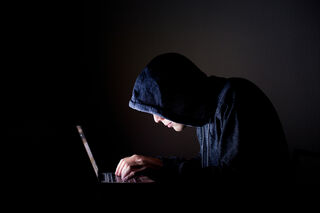Stress
A Good Crisis
A few students are manipulating the COVID crisis to their advantage.
Posted October 28, 2020
Rahm Emanuel, President Obama’s former Chief of Staff, famously said: "Never let a good crisis go to waste." The 2020 COVID crisis has brought the world to its knees, but a few have managed to capitalize on it. One such winner has been Zoom, as organizations, schools, and personal communications have switched to the safety and convenience offered through its virtual connections. But is the crisis of the pandemic creating a good excuse for some to manipulate it to their advantage?
The new academic year looks very different from years past. In addition to socially distanced in-person classes, colleges are also offering remote and hybrid classes to maximize teaching and learning options for educators and students alike. For remote educators, the challenge lies in replicating the classroom experience once they have mastered the technological barrier offered by Zoom or their chosen online platform. Time-tested pedagogical practices must be abandoned, as faculty must devise virtual mechanisms for discussions, lectures, tests, and other assignments relatively on the fly. The effectiveness of these new practices remains up in the air.
As Zoom fatigue peaks and social isolation sets in, administrators are urging faculty to remain flexible in accommodating students’ needs. If a student asks for an extension, give it freely. If their class participation is erratic or sub-optimal, grade it leniently. When all else fails, encourage students to avail of the new generous pass/fail options that can fulfill graduation requirements even without a letter grade.
All of the above has created the perfect storm for a good crisis. The necessary adjustments required by the pandemic to serve legitimate student needs have also created an unfortunate side effect for opportunists to exploit the generosity of their faculty and administrators. How can a faculty member differentiate between a student with a valid need for a deadline extension versus a procrastinating student who simply ran out of time? Or how should a faculty member react, if at all, to the knowledge that some students are not doing honest work when taking their tests?
Such were the experiences that consumed much of my attention last semester when our campus had to suddenly depopulate in March after the onset of the virus became a known reality. In addition to the many adjustments required for my regular teaching, I discovered unexpected emotional curveballs that always caught me wrong-footed. There were the students who went incommunicado after the switch to remote learning; others' natural anxiety skyrocketed, resulting in constant emails for reassurance and clarification. Others got thrust into family-related essential work that meant less time left for their coursework, necessitating reminders and deadline extensions. These were all valid situations that warranted sympathy and accommodation.
But when it became evident that students who had struggled on tests in the classroom were now acing their remote assignments, or when word surreptitiously got back to me that a few anonymous students were breaching closed-book policies, I became flummoxed as to how to respond. How was it fair when honest students earned lower grades than their dishonest peers? It was only a handful of students who ran afoul of ethical norms, but they occupied most of my energy. As Pareto’s Principle grew more pronounced, I found myself reaching the end of my emotional labor rope.

There is much evidence that emotional labor is exhausting (Grandey, 2000). Although it is usually cited as a cause of stress, emotional labor could also be viewed as an outcome of stress. That is, stress depletes mental energy and compromises performance, making it harder to effectively manage one’s emotions.
I learned this firsthand when it came to the simple act of sending emails. Messages that were once so effortlessly written and sent off now required painstaking attention to tone and wording. To my incommunicado students, my messages ran the gamut from concern and encouragement to cautious firmness regarding consequences. For those prone to anxiety, I found myself having to learn the art of eggshell treading in order to offer calmness and compassion. As for those who were under a cloud of suspicion, I compromised with a blanket policy to allow all my students to consult their notes and outside resources when taking their tests. While this ensured equity, it came at the cost of the greatest emotional dissonance between what I felt was the right thing to do and how I felt about the worrisome drop in my usually high grading standards.
So how do we cope with the emotional side-effects of the current crisis? A good first step would be to manage our own expectations. As faculty, we are entitled to practical and emotional accommodations ourselves, which administrators are recognizing with the use of more lenient standards when evaluating faculty work. Second, we can shift to effort-based grading that awards points for attendance, participation, and completion of assignments as a way to circumnavigate traditional grading practices.
If we wish to maintain traditional grading standards, we should adopt an Honor Code that students accept as integral to a culture of integrity (McCabe, Travino, & Butterfield, 1999). Doing so could significantly reduce the temptation to cheat (Ely, Henderson, & Wachsman, 2013). Finally, we can Zoom with our colleagues to bond over similar teaching trials and share coping tips with each other. Research shows that social sharing mitigates emotional labor effects (McCance, Nye, Wang, Jones, & Chiu, 2013), and there is no reason to believe that virtual bonding is any less effective than the in-person variety.
We will all get better at the remote learning paradigm with more experience, with each of us finding a path forward that best suits our unique needs. In time, we will fine-tune our methods and learn to catch the curveballs that come our way. Once the novelty of the good crisis fades away, our emotional labor will dissipate, giving us reprieve for when the next crisis arrives at our doorstep.
References
Ely, J. J., Henderson, L., & Wachsman, Y. (2013). Testing the effectiveness of a University Honor Code. Academy of Educational Leadership Journal, 17, 95-104.
McCabe, D. L., Trevino, L. K., & Butterfield, K. D. (1999). Academic integrity in honor code and non-honor code environments: A qualitative investigation. The Journal of Higher Education, 70, 211-234. DOI: 10.2307/264912
McCance, A. S., Nye, C. D., Wang, L., Jones, K. D., & Chiu, C-Y. (2013). Alleviating the burden of emotional labor: The role of social sharing. Journal of Management, 39, 392-415.




